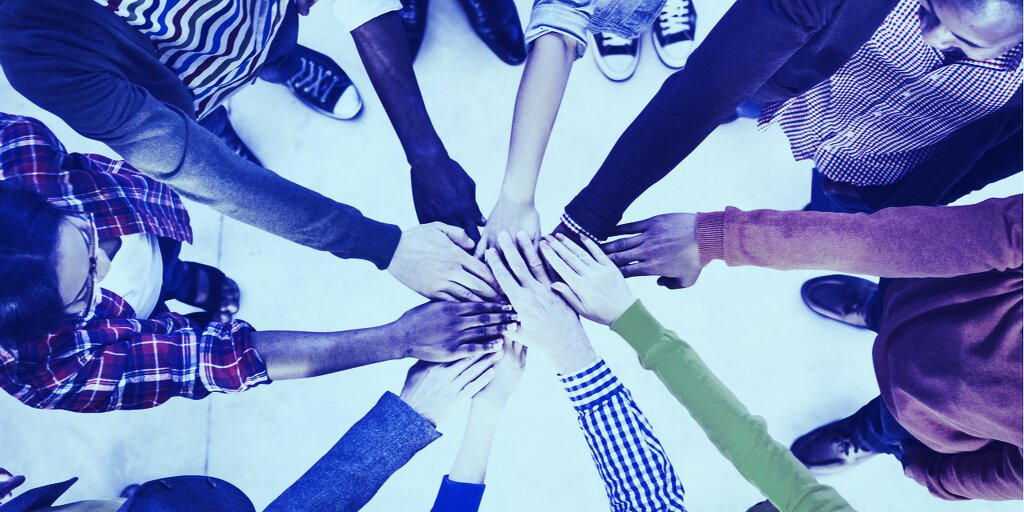This story comes out of PubDAO, a decentralized news wire.
So you want to start a DAO? Why not? All the cool kids are doing it. Like “blockchain” and “DeFi” before it, DAOs have become a buzzword in the crypto industry.
And they’re raising money at a feverish clip. ConstitutionDAO raised just over $45 million in an attempt to buy a copy of the U.S. Constitution. More recently, FreeRossDAO raised $12 million to win the Ross Ulbricht NFT collection auction.
The technical process of starting a DAO is not incredibly difficult:
Draft a mission statement.
Spin up a Discord server.
Invite people to join.
Launch a governance token.
Use Snapshot and other tools for voting and logging member contributions.
The hard part is scaling it.
“It’s extremely easy to launch a DAO,” said Eric Arsenault, head of ecosystem at NFT marketplace Rarible and a core contributor to Rarible DAO. “The harder aspects of launching a DAO are forming the cultural norms, processes, and accountability tools that are essential for success. Having a committed group of contributors is essential.”
What is a DAO?
Let’s take a step back for anyone new to DAO-land. DAOs (decentralized autonomous organizations) are online groups that use smart contracts to manage member participation, voting, funding, and more. While traditional corporate structures resemble a tower, with a select few at the top and the majority in the middle or the bottom, DAOs spread out like a net and give all members a say in decision-making.
The most famous (and now infamous) DAO, called The DAO, was built on Ethereum in 2016 and promptly became the victim of a massive hack of 3.6 million ETH (worth around $50 million at the time). The DAO ended its run after a hard fork of the Ethereum blockchain that resulted in Ethereum and Ethereum Classic becoming two distinct blockchains and effectively rolled back the Ethereum chain to before The DAO hack.
Since then, DAOs have multiplied and matured. DAOs enable people, groups, and businesses to organize and operate without a central authority, typically based around a token as the economic incentive. There are NFT (non-fungible token) investment DAOs, fashion DAOs, media DAOs, and even DAOs for curating tools to help other DAOs.
Challenges facing DAOs
DAOs rely heavily on community participation to grow and thrive. Without consistent member participation, a DAO dries up like a plant that needs water.
API3‘s community manager, who goes by Midhav on Twitter, says stagnation is a significant challenge every DAO faces. “Over time, interest tapers off along with the general sentiment around DeFi and oracles,” Midhav said. “This general trend was reflected across other community outreach programs and goes to show that no amount of proactive outreach efforts can keep people engaged when their attention spans are naturally attuned to the craziness of the rest of the industry.”
Indeed, while NFTs have won much of the mainstream media spotlight in 2021, DAOs have continued to build and grow. And the two topics often overlap: Many of the biggest DAOs focus on creating or acquiring NFTs.
According to the tracking website DAOlist, there are now over 100 DAOs, most of them using the chat app Discord as their home base, by far the most popular social networking platform for organizing DAOs.
A Discord server can support hundreds of channels with thousands of users, assisted by programmable bots. DAOs use various channels to direct member questions, assign roles and tasks, and host community events, building an online community and shared culture around the DAO.
“DAOs are like a cultural system of beliefs,” said SuperDAO’s Yury Lifshits. “Some will fulfill all of those beliefs and some will not.”
Lifshits, co-founder of the messenger app Openland, launched SuperDAO earlier this year, and raised $1 million in pre-seed funding in October to go toward the SuperDAO operating system. He believes DAOs need a template to simplify creation and organization; he calls SuperDAO an operating system for DAOs, including support for core apps (member updates, spending management) and third-party apps.
“I was inspired by the potential of NFTs and DAOs,” Lifshits said, “I see a lot of comparisons because Openland, at its heart, is a platform for chat communities. DAOs are communities with shared bank accounts. They basically are the next better version of communities.”
“DAOs are communities with shared bank accounts. They basically are the next better version of communities.”
Lifshits predicts that as DAOs become more commonplace, we’ll see three primary organizational focus areas that evolve. The first is the use of blockchain, for storing basic facts like wallets containing tokens and smart contract information. The second is the ownership table, which records all people involved with the DAO and their roles. The third is the apps for services like payroll, bookkeeping, taxes, voting, bounty, and incentive programs.
Emma-Jane MacKinnon-Lee, one of the principals behind the Global Design Network (GDN) DAO, believes it’s essential to represent and incentivize members’ contributions appropriately, having them work toward higher levels of responsibility and influence while keeping the DAO dynamic.
“There aren’t any great tools that exist on the market that allow us to better automate this structure,” MacKinnon-Lee said. “So as we grow to the next 500 to 1,000 members the manual processes required are going to start taking a bigger toll in both time and coordination.”
Currently, DAOlist says the largest active DAO by asset under management is Uniswap, at around $3.3 billion with over 83,000 members.
MacKinnon-Lee says that even with bots, it still requires motivating members to interact with bots and effectively make updates, invite and onboard new members, and organize voting and fundraising. Using smart contracts for voting is great, but getting members to actively engage with each other is even better.
Arsenault of Rarible adds that forming a DAO in any top-down fashion is detrimental to its health. If members don’t feel they have enough of a voice, your DAO will die.



